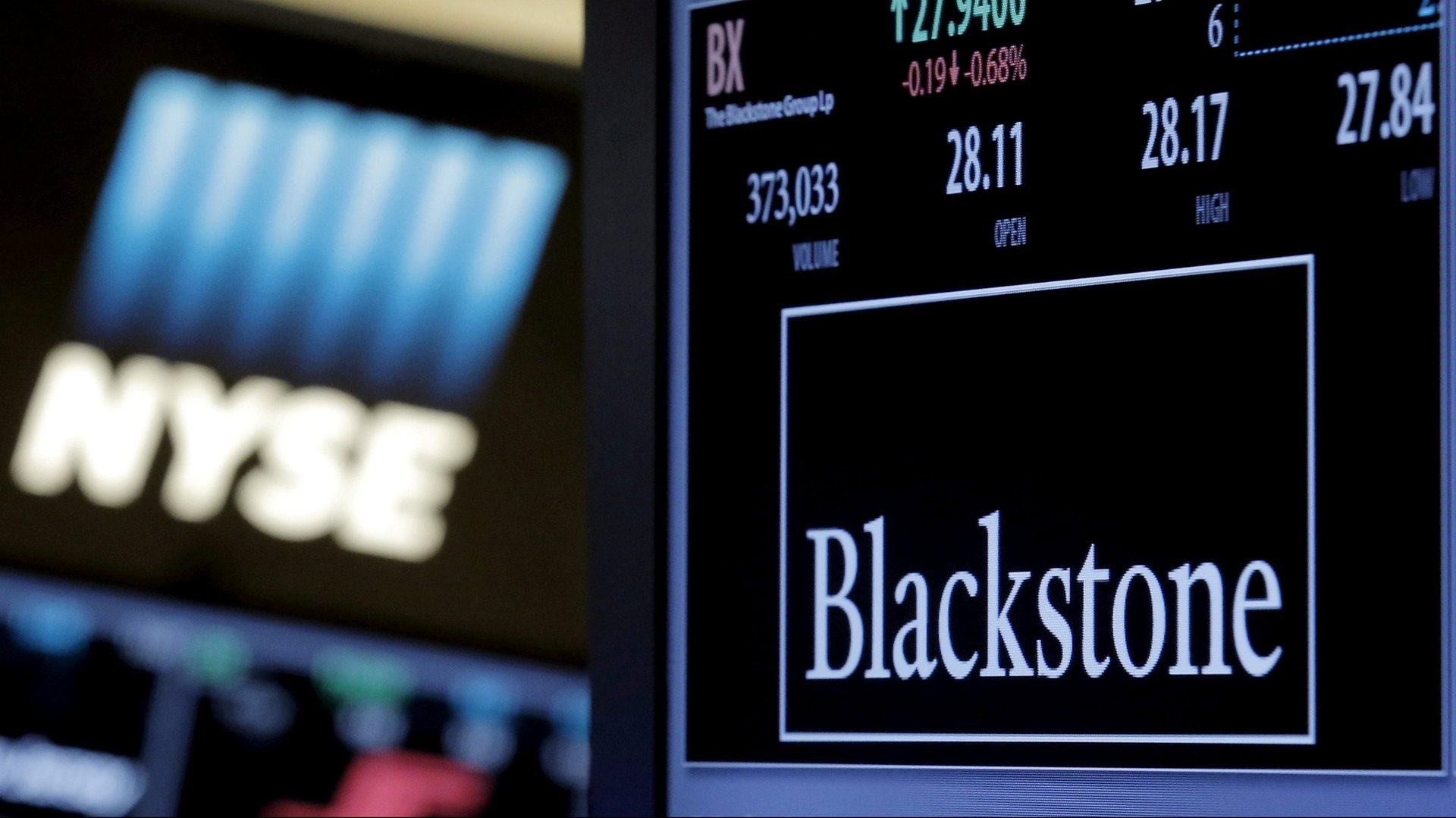Blackstone has become one of the biggest warehouse landlords on earth
Correction 12/8/21: This story originally claimed that Blackstone owned 1.2 billion square feet of warehouse space, making it the largest warehouse landlord in the world. Blackstone actually owns about 950 million square feet of logistics real estate. Prologis is still the world’s largest warehouse landlord.


Correction 12/8/21: This story originally claimed that Blackstone owned 1.2 billion square feet of warehouse space, making it the largest warehouse landlord in the world. Blackstone actually owns about 950 million square feet of logistics real estate. Prologis is still the world’s largest warehouse landlord.
Blackstone, the world’s largest private equity firm, invests in nearly everything in the global economy: biomedical research, digital payments, autonomous robots, power plants, motel chains, dating apps, and a slew of amusement parks including SeaWorld and Legoland.
But lately, there’s nothing Blackstone loves more than a warehouse.
In 2019, Blackstone real estate head Ken Caplan said warehouses were the firm’s “highest conviction global investment theme” after Blackstone spent $18.7 billion to buy up 179 million square feet of warehouse space. (Blackstone claims it was the largest real estate transaction of all time.) Since then, the company has been on a spending spree. Blackstone now owns about 950 million square feet of logistics real estate, according to a company spokesperson, making it one of the largest warehouse landlords on earth.
Blackstone is betting on the future of e-commerce. As more of our spending moves online, more goods will have to be collected, packaged, labeled, shipped from, and returned to warehouses. The e-commerce vendor with the most efficient network of warehouses will be best positioned to slash delivery times from days to hours, giving it a competitive advantage over its rivals. Blackstone wants to be their landlord. By renting out those warehouses to the highest bidder, it stands to cash in as more of the economy moves online: The world will spend $4.2 trillion on e-commerce this year, and the sector is expected to top $10 trillion by 2025.
Demand for warehouses soared during the pandemic
The pandemic accelerated two trends that have made warehouses a hot commodity. First, people at home under lockdown spent more on e-commerce and less on travel, services, and brick-and-mortar stores. Second, it scrambled the world’s supply chains, creating global shortages of everything from toilet paper to semiconductors.
That’s forced investors and executives to think more about logistics than they ever had before. To beef up their e-commerce supply chains, companies started buying up warehouses. Amazon, for instance, has bought 33 warehouses since March 2020, more than doubling the number of fulfillment facilities it owns, according to data from real estate analytics platform Reonomy. Walmart and Target have tripled their investments in warehouses since the start of the pandemic, according to Reonomy. Private equity firms like Blackstone and KKR invested heavily in warehouses, too.
One way to gauge demand in real estate is to look at a sector’s “net absorption rate,” which measures how many square feet of property became occupied in a given year, minus the number of properties that became vacant. When net absorption is high, it means lots of owners are buying up properties and putting them to use. This year, net absorption in the logistics sector, which includes warehouses, hit record highs.
Blackstone battles Prologis over warehouses
For the past decade, the undisputed king of the warehouse world has been Prologis, a real estate investment trust founded in 1983. The San Francisco-based firm owns about 1 billion square feet of warehouse properties around the world. Blackstone only started buying up warehouses about 10 years ago. As recently as May 2020, the private equity firm controlled 850 million square feet. Since then, Blackstone has scooped up another 100 million square feet, putting it within striking distance of Prologis.
Blackstone’s aggressive expansion promises a new rivalry in the tight market for warehouse real estate. Data from Prologis shows warehouse vacancies hitting a record low of 3.9% in the US, even as new warehouse construction continues to grow.
Blackstone argues its warehouse business will leverage the data from all of Blackstone’s other businesses to make better investment decisions. “We operate as one globally connected business and we have a constant view into what’s happening in the markets and our portfolio,” said Caplan, the head of Blackstone’s real estate division.
Prologis is betting that its early entry into the industry, and prime real estate, will give it a durable advantage over rivals. “We’ve been in the business for 40 years and we’ve cultivated a portfolio that [includes a lot of properties near major cities],” said Cris Caton, who heads strategy and analytics at Prologis. “The new supply that comes online is farther from city centers and less competitive than the standing stock.”
Although the companies are sparring for dominance, the warehouse industry is growing so fast that there is room for more than one global player. The fiercest competition emerged in redesigning warehouses, not known as a hotbed of innovation. Prologis still has the edge there: the firm built some of the first multi-story warehouses in North America to save space in dense cities so e-commerce firms can reach urban customers faster.